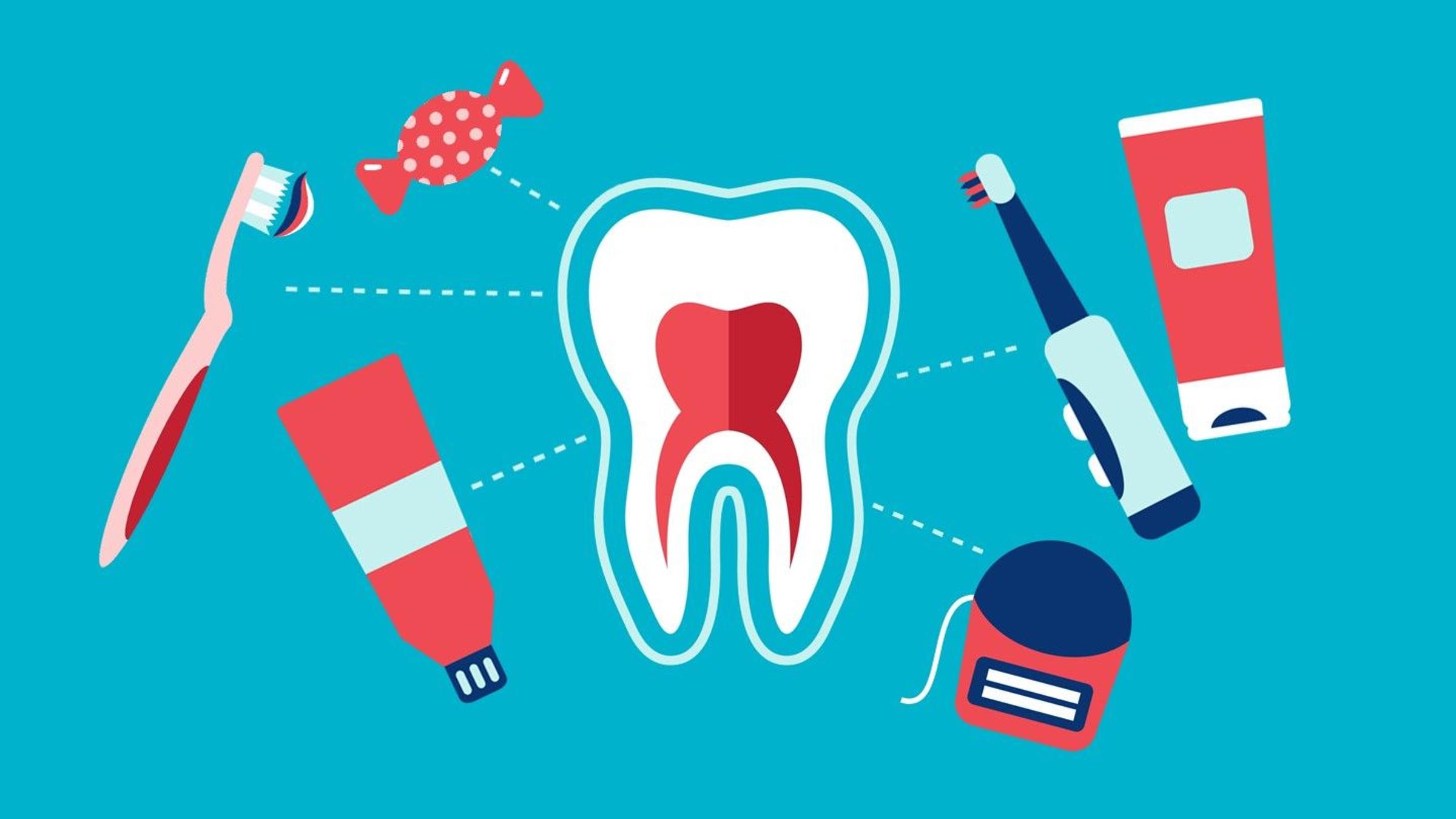Dental Hygiene

Dental Hygiene
National Quality Standard 3.1.2 refers to children's health practices and procedures.
"In helping children to take growing responsibility for their own health and physical wellbeing, educators model and reinforce health and personal hygiene practices with children. Educators also promote continuity of children’s personal health and hygiene by sharing ownership of routines and schedules with children, families and the community."
(Guide to the National Quality Framework, 2020, p. 153-154)
Babies are born without teeth, and the primary teeth that come through (also known as baby or milk teeth) usually fall out by 11 to 12 years of age.
Some believe that baby teeth are disposable, and only adult teeth require care. However, primary teeth allow children to chew and speak properly, and the molars orthodontically maintain space for the developing adult teeth. Like permanent teeth, primary teeth are susceptible to dental caries (decay) and, if left unattended, can cause pain and abscesses.
Daily care is needed so that children don’t develop dental caries, resulting in the need for restorations (fillings) or early extraction. It’s not just brushing that is required: bottles, dummies and diet all play an important role in how healthy a toddler’s teeth are.
Dental check-ups are important for all children, to assess the developing dentition and to identify risk factors are:
- developmental enamel defects
- unsupervised brushing and flossing
- frequent snacking
- on-demand breastfeeding past the age of 12 months
- night-time bottle-feeding with liquids other than water, such as milk or fruit juice.
Tips for mums and dads:
- Oral hygiene: Tooth brushing and flossing on a daily basis is important in helping dislodge food and reduce bacteria plaque levels.
- Diet: Parents should be aware of components of diet that affect dental health, such as the cariogenicity (that is, the potential to cause decay and caries) of certain foods and beverages, the effect of frequent consumption of these substances, and how diet affects the demineralisation and remineralisation of tooth enamel.
- Fluoride: Using a fluoridated toothpaste and drinking fluoridated tap water assist in the formation of enamel and remineralisation of early signs of decay.
- Delay of colonisation: Avoiding saliva-sharing behaviours (such as sharing spoons with babies) can help prevent early colonisation of MS in infants.
by Dr Michele Tjeuw
(Paediatric dentist in Early Childhood Australia Publication - ‘Brush those babies! – Baby and infant oral health’)
In response to some of our current research, we would like to explore putting a working group together around Dental Hygiene and offering our families the opportunity for their child to participate in a morning teeth brushing program after breakfast is served.
We would appreciate you participating in the following survey. Please follow the link or QR code.
https://www.surveymonkey.com/r/PNGPCGS

